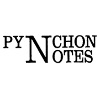Abstract
Joseph Tabbi's Postmodern Sublime is an intelligent, well-written and learned exposition of the impact of modern advances in technology on the works of a number of important American postmodernist writers. In particular, Tabbi draws upon the category of the sublime (especially as delineated by Thomas Weiskel) to provide a framework within which to discuss the ways writers like Norman Mailer, Thomas Pynchon, Joseph McElroy and Don Delillo attempt to "reflect imaginatively" on a modern technological world that has become too complex for direct representation. But Tabbi usefully insists that in these writers this impossibility of adequate representation does not result in a reflexive inward turn toward textual play, but in an intense engagement with contemporary reality. Indeed, Tabbi himself characterizes his book in the preface as "a critical investigation of (and occasional polemic on behalf of) a contemporary literary realism, one whose psychology expresses itself in the material constructions of an emerging technological reality" (x). Because of the complexity of this "realism," however, the representation of technological reality in these writers must go far beyond the mere use of technological jargon or description of technological devices. It must convey the sense of an entire worldview fundamentally informed by the constant presence of technology in our lives.
How to Cite:
Booker, M. K., (1994) “Postmodernism and the Technological Imagination”, Pynchon Notes , 199-204. doi: https://doi.org/10.16995/pn.207
Downloads:
Download PDF

